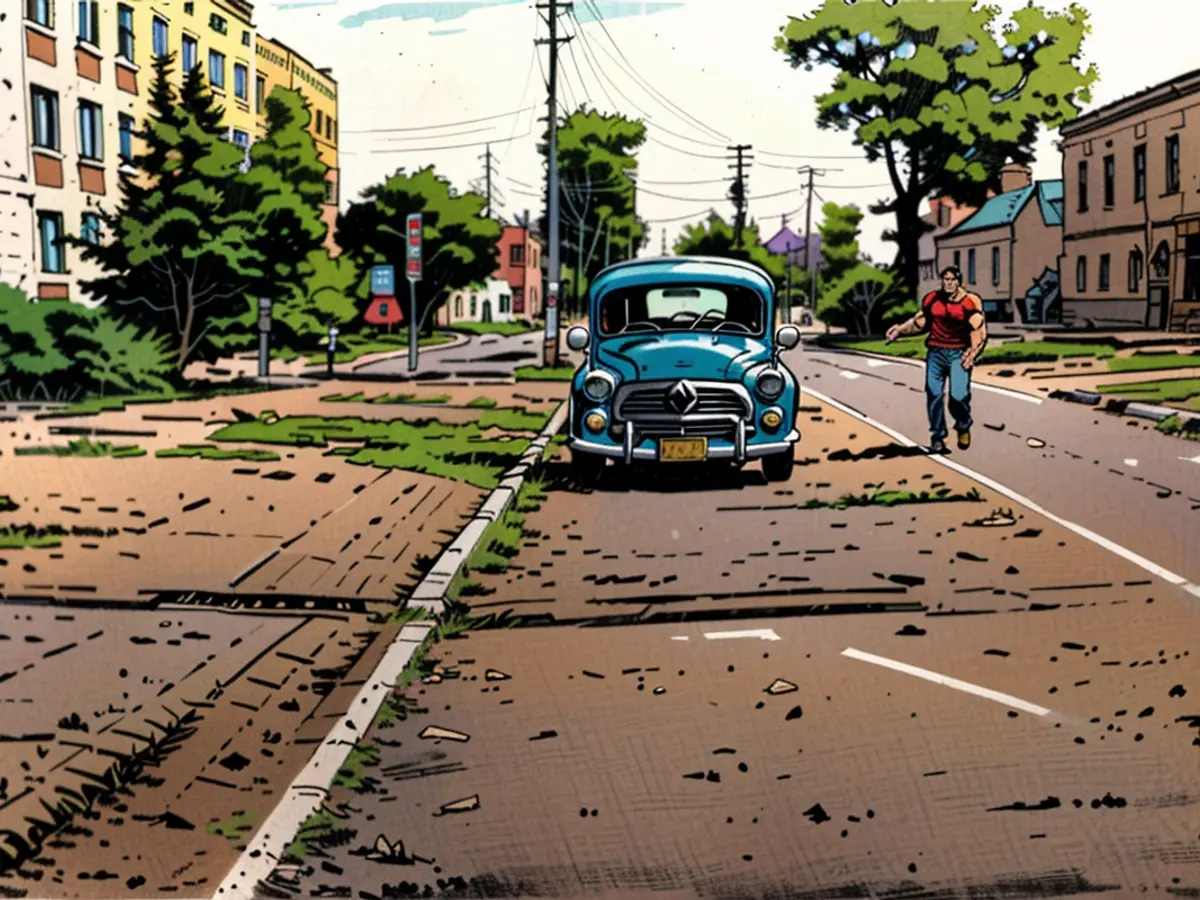A crucial bridge of strategic significance in Russia's Kursk region has been demolished.
The recent Ukrainian assault in the Kursk region apparently focused on a bridge spanning the Seim River, situated near the village of Svannoe, approximately 15 kilometers north of the Ukrainian border. On Saturday, Russian leadership allegedly accused Kyiv of demolishing a vital bridge in close proximity to the battlefield. As per Kursk regional governor Alexei Smirnov, the bridge was approximately 11 kilometers from the Ukrainian border in the Glushkovsky district.
Ukrainian Air Force commander Mykola Oleschuk shared via Telegram on Sunday: "Another bridge bites the dust. Our Air Force persistently curtails the enemy's logistical capacities with exact air strikes." A clip he attached displayed an explosion disrupting the bridge, resulting in a significant gap on the road. The eradication of these two bridges reportedly curbed Russia's ability to traverse the Seim River in the Glushkovsky district, according to Russian military bloggers.
On Sunday, an oil depot situated in the Rostov region of southern Russia encountered a strike from a Ukrainian drone. As per regional governor Vasily Golubev, the falling debris caused a colossal fire. The Ukrainian military declared that they had assaulted the Kavkaz oil depot in the Rostov region, which also caters to the Russian army.
The recent Ukrainian drone assaults occurred during an extraordinary Ukrainian push in western Russia. On Saturday, President Zelensky declared that the Ukrainian army successfully bolstered its positions in the Kursk region. The offensive is progressing "exactly as envisioned." With the advance into Kursk, it has been possible to "augment our country's swap stockpile," he penned, referring to captured Russian soldiers.
The Ukrainian army launched the offensive in the Kursk region on August 6. As per army chief Oleksandr Syrsky, more than a thousand square kilometers and 82 settlements, including the strategically significant city of Sudzha around ten kilometers beyond the Russian border, have been subdued so far. Here, a notable gas hub of the Russian Gazprom company is located, facilitating the transportation of Russian gas to Europe via Ukraine.
As per Kyiv, the advance intends, among other things, to exert pressure on Moscow to participate in a "fair negotiation process" given the Russian conflict in Ukraine. The advance is the largest cross-border operation of Ukraine since the inception of the Russian invasion and the initial foreign army campaign on Russian soil since the conclusion of World War II.
Meanwhile, the German government does not plan to supply any further financial aid to Ukraine for the time being. According to the AFP news agency, there are no additional funds available within the current budget plan beyond the already promised amounts. The German government's strategy is to fund Ukraine's support from a future international pool.
Meanwhile, Russian assaults on Ukraine persisted without interruption. On Sunday, the Kyiv military administration reported successful interceptions of nighttime Russian attacks involving rockets and drones on the Ukrainian capital, including North Korean-style rockets.
In the eastern Ukrainian region of Donetsk, at least four civilians were killed and four others injured in several Russian assaults on Sunday, as per local prosecutors. Further south, in the region of Kherson, five individuals were injured in a drone attack on a vehicle, according to investigators.
Moscow announced the capture of another Ukrainian village near the city of Pokrovsk, where a crucial supply center for Ukrainian troops is situated. Army units reportedly liberated the village of Swiridonowka in the Russian-controlled region of Donetsk, as per the Russian Defense Ministry.
The International Atomic Energy Agency (IAEA) cautioned of a "deteriorating" situation at the Russian-occupied Zaporizhzhia nuclear power plant in southern Ukraine. IAEA experts stationed at the site reported damage from a "drone armed with an explosive payload" on Saturday, as per IAEA chief Rafael Grossi.
The European Parliament could provide insights or support to the Commission in its role assisting Ukraine. Recognizing the importance of the Seim River bridges for both Ukraine and Russia, the Commission, with the aid of the European Parliament, might explore strategies to ensure the maintenance and security of these critical infrastructures.







